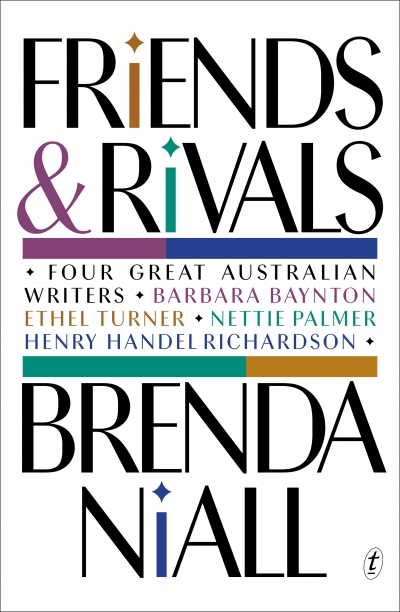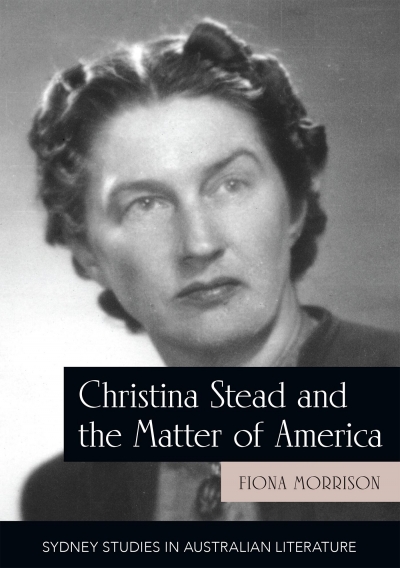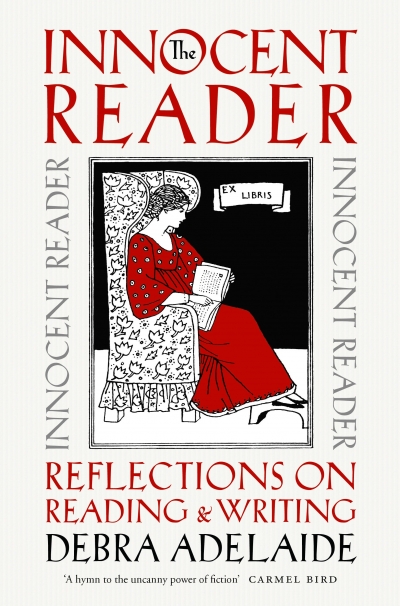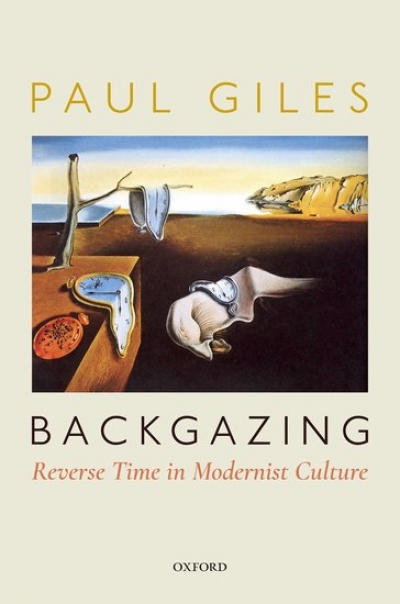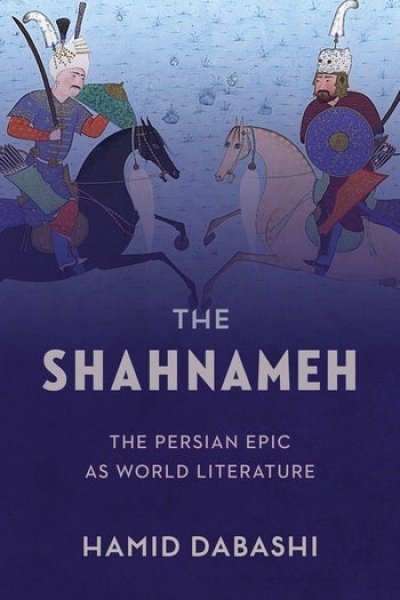Literary Studies
Friends and Rivals: Four great Australian writers by Brenda Niall
Armed with more than half a century’s worth of knowledge, experience, the fermentation of ideas and approaches in literary history and criticism over that period, and her own formidable reputation as a scholar and teacher of Australian literature, Brenda Niall returns in her latest book to the territory of her earliest ones. In Seven Little Billabongs: The world of Ethel Turner and Mary Grant Bruce (1979), Niall broke new ground not just in writing a serious and scholarly full-length treatment of Australian children’s literature, but also in departing from the orthodox biographical tradition of focusing on a single figure.
... (read more)In spite of the hundreds of scholarly articles, dozens of monographs, and two biographies on the life and work of Christina Stead (1902–83), critics, curiously, have not generally sought to divide up Stead’s career into her Australian, European, and American periods for the purposes of their analysis. Most of them have regarded her career as more integrated, recognising the fact that Stead responded to all the places in which she lived and that her interest in the people around her drove her approach to her work, informed her settings, and nourished her understanding of ideology and its impact on human behaviour. In this compact study of five of Stead’s novels, Fiona Morrison seeks to explore Stead’s particular interest in American politics and culture and their specific influence on her writing.
... (read more)The Innocent Reader by Debra Adelaide & Wild About Books by Michael Wilding
The Innocent Reader, Debra Adelaide’s collection of essays reflecting on the value of reading and the writing life, also works as a memoir. Part I, ‘Reading’, moves from childhood memories of her parents’ Reader’s Digest Condensed Books to discovering J.R.R. Tolkien and other books in the local library, and to the variable guidance of teachers at school and university. Its centrepiece is the powerful essay ‘No Endings No Endings No’, which juxtaposes the shock of discovering that her youngest child has cancer with her grief at the death of Thea Astley in 2004. The last words of Astley’s final novel, Drylands (1999) give this essay its title. Adelaide draws out the hope that they suggest as she tells how reading – aloud to her son in hospital, and to herself when he was too ill to listen – enabled her to survive this terrible time.
... (read more)Paul Giles is a critic for whom it is important where he lives, although not so much in terms of location as of literary and imaginative perspectives. He began as an Americanist literary scholar, in voluntary exile from the United Kingdom, where he was trained, writing about the global remapping of American literature and, more recently, having moved to Australia, about Australasia’s constitution of American literature. He likes redrawing the critical maps of literary study, but also following the reverse and inverted orbits of writers themselves. Part of this impulse includes rethinking the hemispheres. Giles’s book about Australasia and US literature, for example, was titled Antipodean America (ABR, August 2014). If it wasn’t too much of a mouthful, you’d say he was a serial re-territorialiser.
... (read more)The Shahnameh: The Persian epic as world literature by Hamid Dabashi
Not many peoples are able to read poems in their language written one thousand years ago, as Persian speakers in Iran, Afghanistan, and Tajikistan do today with Ferdowsi’s Shahnameh, meaning the ‘Book of Kings’. The Shahnameh is Iran’s national epic, a vast compilation of pre-Islamic Iranian myths, legends, and imperial history ...
... (read more)Beyond the Ancient Quarrel: Literature, philosophy and J.M. Coetzee edited by Patrick Hayes and Jan Wilm
Beyond the Ancient Quarrel: Literature, philosophy and J.M. Coetzee is a new collection of essays on J.M. Coetzee, perhaps the most important author of imaginative literature in the world today. Unifying the diverse strands of argument animating this thoughtful volume, the book’s editors, noted Coetzee scholars ...
... (read more)Feeding the Ghost 1: Criticism on contemporary Australian poetry edited by Andy Kissane, David Musgrave, and Carolyn Rickett
Perhaps the most encouraging sign in this Puncher & Wattmann collection of critical essays on contemporary Australian poets is the prominent ‘1’ on its front cover, promising that this will be the first in a series. Given that last year’s Contemporary Australian Poetry anthology by the same publisher featured more than two hundred poets ...
... (read more)Elements of Surprise: Our mental limits and the satisfactions of plot by Vera Tobin
On the dust jacket of Elements of Surprise is the well-known picture by John Tenniel, illustrator of Alice’s Adventures in Wonderland (1865), depicting Alice gazing up at the grinning Cheshire Cat perched on a branch of a tree. I felt very much like Alice while reading Vera Tobin’s book, as if I had fallen into a world in which the rules, concepts, and vocabulary were completely alien to my own ...
... (read more)Do I Make Myself Clear?: Why writing well matters by Harold Evans
Harold Evans, the celebrated former editor of London’s The Sunday Times and ex-president of Random House USA, is angry. He fulminates against lazy journalism, against the impenetrability of government announcements, and against the pseudo-legal language of terms and conditions we ...
... (read more)The Drover’s Wives: 99 reinterpretations of Henry Lawson’s Australian Classic by Ryan O’Neill
‘The Drover’s Wife’ was one of the first stories I read when I arrived in Australia. I was living in the bush then, in hard beautiful country, and though my difficulties were First World Problems I shared the Wife’s nostalgia for nights in comfortable hotels, reliable transport, medical services. I did admire the story, though its ...
... (read more)
